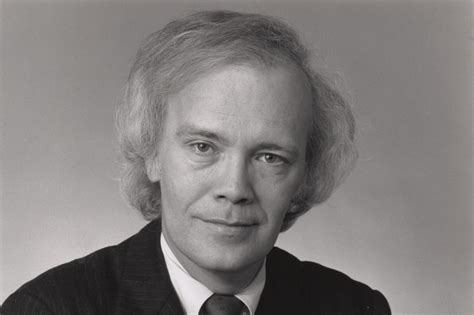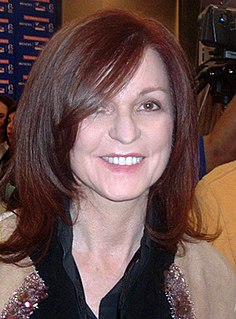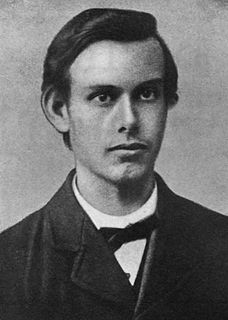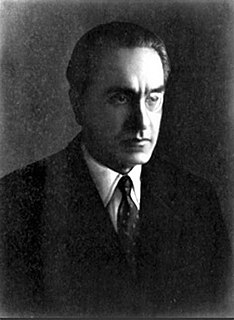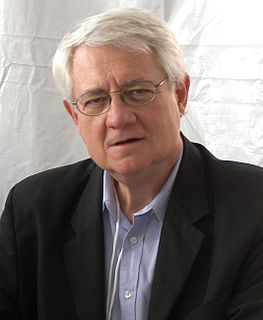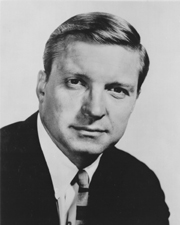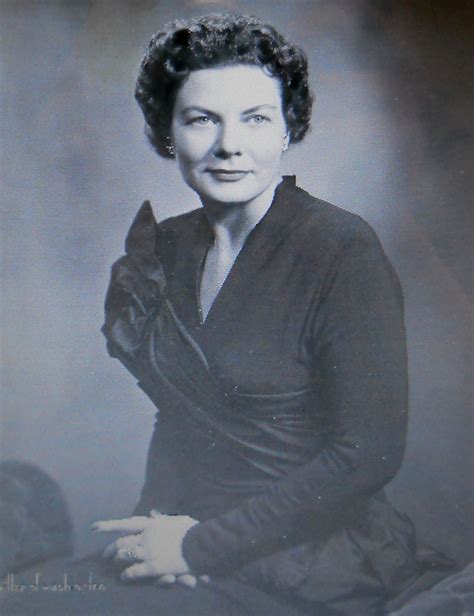Top 1142 Print Quotes & Sayings - Page 17
Explore popular Print quotes.
Last updated on April 20, 2025.
New online formats gutted the newspaper-ad business. Why pore over tiny print looking for a job in the want ads when you can tap a few keywords into monster.com, then click through and apply? Why pay a steep per-character rate for a classified when you can hawk a whole garage full of used stuff on EBay or Craigslist for free?
Over the years since I became a Christian, I have always deliberately explained that I have 'accepted Jesus Christ.' These words are invariably translated into 'Colson's professed religious experience.' I discovered that one major U.S. daily, as a matter of policy, will not print the two words Jesus Christ together; when combined, the editor says, it represents an editorial judgment.
I have a difference with Senator [Bernie] Sanders, who promises free college, which, if you look at the fine print, depends really on governors coming up with a lot of the money, which I don't think is a particularly wise bet. And I have a plan to help people pay down their student debt, because I want to unleash the entrepreneurial energy that young people have.
I believe that online paid content hasn't worked for general circulation newspapers because consumers weren't ready for it, because the implementation did not deliver enough value, because content was typically the same as in the print version, and because much of the material was being syndicted by the papers to other publishers or was not protected with DRM technologies to exclude use by others.
Just in higher education alone, more people go to college now, by enormous amounts, than went to college in the '50's and '60's. So that represents a whole new literate public that's a consumer of literature, of news, of print, of, you know, opinion. And that's a bigger audience and much more diverse audience than it used to be.
Fifteen minutes of fame doesn't make a career. An article in a magazine, newspaper, interview on television or multiple print ads may stroke your ego, but nothing much else. An artist's career is a lifetime venture. Just because an artist is on top doesn't mean they are sheltered from a crash. As has been stated, the higher you climb, the harder you fall.
If a theology student in lowa should get up at a PTA luncheon in Sioux City and attack the President's military policy, my guess is that you would probably find it reported somewhere the next morning in the New York Times. But when 300 Congressmen endorse the President's policy, the next morning it is apparently not considered news fit to print.
Different levels of photography require different levels of understanding and skill. A "press the button, let George do the rest" photographer needs little or no technical knowledge of photography. A zone system photographer takes more responsibility. He visualizes before he presses the button, and afterwards calibrates for predictable print values.
Especially with a magazine like Lampoon, which was very dependent on newsstand sales. Our readers didn't usually occupy the same address long enough to get a subscription, because they were in college, or they were hippies. So it was very up-and-down, and we had to calculate how many to print, which was always sort of a headache from a business point of view.
I think most people aren't really privy to how stories are developed and what stories are - make it to the front page or to the mainstream media, whether it's in print or in broadcast. And I think they'd be shocked and disappointed to see some of the bias that exists in some of the stories that don't get told - or the manner in which they are told.
The best advice I can give on this is, once it's done, to put it away until you can read it with new eyes. Finish the short story, print it out, then put it in a drawer and write other things. When you're ready, pick it up and read it, as if you've never read it before. If there are things you aren't satisfied with as a reader, go in and fix them as a writer: that's revision.
Strictly speaking, it probably is not “necessary” for the federal government to tax anyone directly; it could simply print the money it needs. However, that would be too bold a stroke, for it would then be obvious to all what kind of counterfeiting operation the government is running. The present system combining taxation and inflation is akin to watering the milk; too much water and the people catch on.
As long as you notice, and have to count the steps, you are not yet dancing but only learning to dance. A good shoe is a shoe you don't notice. Good reading becomes possible when you need not conciously think about eyes, or light, or print, or spelling. The perfect church service would be the one we were almost unaware of; our attention would have been on God.
I think that all journalists, specifically print journalists, have a responsibility to educate the public. When you handle a culture's intellectual property, like journalists do, you have a responsibility not to tear it down, but to raise it up. The depiction of rap and of hip-hop culture in the media, I think, is one that needs more of a responsible approach from journalists.
I think democracies are prone to inflation because politicians will naturally spend [excessively] - they have the power to print money and will use money to get votes. If you look at inflation under the Roman Empire, with absolute rulers, they had much greater inflation, so we don't set the record. It happens over the long-term under any form of government.
All men have heard of the Mormon Bible, but few except the "elect" have seen it, or, at least, taken the trouble to read it. I brought away a copy from Salt Lake. The book is a curiosity to me, it is such a pretentious affair, and yet so "slow," so sleepy; such an insipid mess of inspiration. It is chloroform in print. If Joseph Smith composed this book, the act was a miracle — keeping awake while he did it was, at any rate.
I love telling stories. When people interview me live I'm totally forthcoming about stories like that - as long as it's not going to be in print or recorded. It's just for whoever's in the audience. It's always been for me kind of fun and then everyone walks out of there, "She told this story about da da da" but nobody can prove it.
Clean lines have always been important to me, both in terms of interiors as well as fashion. For interiors, I am more interested in textures and surface treatments than bold color or print - the vein on a wood or the shine on a lacquer, for example. I know immediately when something isn't working - usually it's a question of consistency - and I make instantaneous decisions on how to remedy the situation.
In her final months Princess Diana was being shat upon by the tabloids -- basically for sleeping with an Arab. When she died, these same papers were astonished by the millennial wave of emotionalism that swept the country ... One paper had a print-ready story about what a slag the Princess was, and they had to pull it at the last moment. It was replaced with an image of Diana as an angel, ascending to heaven.
I worked in the warehouse, and I would pick up orders. I would go to the computer screen, print off the order from a customer and then it would have where all the stuff was located in the warehouse. I'd go get a big gray cart, and you had to fill up these bins with all the parts. And it wasn't air-conditioned in there.
Summer set lip to earth's bosom bare, And left the flushed print in a poppy there: Like a yawn of fire from the grass it came, And the fanning wind puffed it to flapping flame. With burnt mouth red like a lion's it drank The blood of the sun as he slaughtered sank, And dipped its cup in the purpurate shine When the eastern conduits ran with wine.
The founding American generations did something that almost no others have ever done. They read the fine print! They taught their children to read bills, laws, court cases, legislative debates, executive decrees, and bureaucratic policies. They read them in schoolrooms and at home....They said they would consider their children uneducated if they didn't read such things.
Why one picture stands out among many others is always a mystery. In the beginning the subject is never quite known, but in the course of working something shows up on the film or in the print that speaks to me. I can never predict when this will happen. However, when it does there is an excitement - there is the ecstasy of recognition. And this is one of the things that keeps me going.
Without books, history is silent, literature dumb, science crippled, thought and speculation at a standstill. Without books, the development of civilization would have been impossible. They are engines of change, windows on the world, and (as a poet has said) "lighthouses erected in the sea of time." They are companions , teachers, magicians, bankers of the treasures of the mind. Books are humanity in print.
I have come to believe that large print, thick and heavy paper, and wide margins and oversize leading is indicative of the expected intelligence of the reader. … Compare children's books and books on Web Duhsign or other X-in-21-days books. If the reading level of a specification is below college level, chances are the people behind it are morons and the result morose.
I use a computer, but before I begin each new book I keep a notebook. I write down everything that comes to mind during that period before I actually begin. It might take months or weeks. That notebook is my security blanket so that I never have to face a blank screen (or blank page). But I print out often and my best ideas usually come with a pencil in my hand.
The continually progressive change to which the meaning of words is subject, the want of a universal language which renders translation necessary, the errors to which translations are again subject, the mistakes of copyists and printers, together with the possibility of willful alteration, are themselves evidences that human language, whether in speech or print, cannot be the vehicle of the Word of God.
There's been a bit of confusion about Showscan. The basic problem was, it was film and it was 70 mm and it was a lot of it, so the negative cost was very high, the print costs were very high, and it also required conversion of the projectors and theaters and a lot of costs. I just couldn't get any traction in the theatrical movie industry to do it.
I hate cameras. They interfere, they’re always in the way. I wish: if I could just work with my eyes alone. To get a satisfactory print, one that contains all that you intended, is very often more difficult and dangerous than the sitting itself. When I’m photographing, I immediately know when I’ve got the image I really want. But to get the image out of the camera and into the open, is another matter.
The much-vaunted sex appeal of American women is drawn from films, reviews and pin-ups, and is in large print fictitious. A recent medical survey in the United States showed that 75% of young American women are without strong sexual feeling and instead of satisfying their libido they seek pleasure narcissistically in exhibitionism, vanity, and the cult of fitness and health in a sterile sense.
The time will come, and probably during 2009, that the only way the U.S. will be able to fund its deficits is to create money by printing it. The Treasury will have to sell bonds, and, in the absence of foreign buyers, the Fed will have to print the money to buy them. The consequence will be runaway inflation, increasing interest rates, recession, and inevitable tax increases on all Americans.
My dad's an actor. Ever since I was little, I'd watch him do it, and I was always very into it. I got into when I was about two years old. I started out with print work, doing modeling and stuff. Then I got into commercials and TV. Once I started, I loved doing it. It's just something that I've continuted over the years, and I love it.
When you pay social security taxes, you are in no way making provision for your own retirement. You are paying the pensions of those who are already retired. Once you understand this, you see that whether you will get the benefits you are counting on when you retire depends on whether Congress will levy enough taxes, borrow enough, or print enough money.
Somebody realized, hey, students are printing dummy ads and dummy news stories, why don't they really print something. So there was the Shortridge Daily Echo, and a hell of a lot of writers have come out of Shortridge on that account. The head writer of the I Love Lucy show, Madelyn Pugh, was a schoolmate of mine. Dan Wakefield. Writing was a perfectly reasonable thing to do.
I was in front of an ambulance the other day, and I noticed that the word ambulance was spelled in reverse print on the hood of the ambulance. And I thought, Well, isn't that clever. I look in the rear-view mirror; I can read the word ambulance behind me. Of course while you're reading, you don't see where you're going, you crash. You need an ambulance. I think they're trying to drum up some business on the way back from lunch.
Being goal-oriented instead of self-oriented is crucial. I know so many people who want to be writers. But let me tell you, they really don't want to be writers. They want to have been writers. They wish they had a book in print. They don't want to go through the work of getting the damn book out. There is a huge difference.
The only reason the word "brand" gets a little tiresome is that something that is complex and wonderful and deep begins to sound like a can of tomato soup. I recoil at that, but I'm used to it. I know what it means: It means that The New Yorker is not merely the magazine that comes out in print once a week. It's the Web site, it's the festival, it's our mobile application - all these things - and what they stand for and what they mean.
It's true that the young who now flock to script writing, or producing and directing, to fulfill the demands of these new devices would, in an earlier period, have been submitting to magazines and working on their first novels. But even in the midst of all these "digital products," the wonder of it is that there are still so many young writers who continue to believe in the venerable print novel as the corridor to fame and fortune.
Twiddle-twiddle away at my softly clicky keyboard for a while, making twiddly adjustments all along- and then print what I have twiddled. Glare at the printout and snarl and curse and scribble almost illegibly all over it with a ballpoint pen. Go back to the machine and enter the scribbles. Repeat this procedure until I hate the very meaning of every word I know.
I went to a Catholic high school, which, to this day, I could burn down. And I got great revenge because they had their fiftieth anniversary, andThe Baltimore Sun called me and said, ‘What did you think of your high school?’ And I said, ‘They discouraged every interest I ever had.’ And I saw that in print.
I'm four and a half years older than my sister - it's an interesting age difference. Growing up it feels like a big rift. Then you get older and you realize it's not. But for a while there, we really didn't have much to do with each other - mostly because I should have been a better older brother. I'm making up for lost time. I want that in print so she can read it.
I want to fall on the floor laughing - imagining Hillary Clinton working well in the Senate with everybody else! Oh, give me a break. I've already joked in print that they would need to build her a private cloakroom on the Mall. This is not a woman who has any ability to deal with the mass of humanity. She is the most arrogant, the most moralistic, the most sermonizing and annoying person on earth.
... I feel the American public would be in a better position to exercise freedom of dietary choice if it were stated in bold print on the Goals and Food Selection pages that the value of dietary change remains controversial and that science cannot at this time insure that an altered diet will provide improved protection from certain killer diseases such as heart disease and cancer.
American author Mark Twain, while viewed as liberal and non-judgmental, did at times demonstrate both these characteristics. While his reasons for detesting the Christian faith are unclear, they seem to have been profound and deep-rooted. Having lambasted the founder of Christian Science, Mary Baker Eddy, in a later quote he referred to the Book of Mormon as "chloroform in print."
One of the greatest and also the commonest of faults is for men to believe that, because they never hear their shortcomings spoken of, or read about them in cold print, others can have no knowledge of them. GEORG CHRISTOPH LICHTENBERG, The Reflections of Lichtenberg We are often more agreeable through our faults than our good qualities.
When we hold a photo negative up to the light all objects are reversed. Black is white, white is black. Moreover, the character lines of any face in the picture are not clear. Once placed into the developing solution, what photographers call "the latent image" is revealed in the print-darkness is turned to light; and, lo, we have a beautiful picture.
When we were all getting ready to leave, I walked up to my grandfather and gave him a hug and kiss on the cheek. He wiped my lip print off with his palm and gave me a look. He doesn't like the boys in the family to touch him. But I'm very glad that I did it anyway in case he dies. I never got to do that with my Aunt Helen.
The BBC is very much in thrall to all this techno cross-fertilisation, in much the same way that print journalists are now encouraged to blog. To the point where there is an emerging breed of sub-editors who take perfectly well-written and punctuated original copy and rewrite it so that it resembles a text message written by a 14-year-old under the influence of Bacardi Breezers.
It was true that there was no such person as Comrade Oglivy, but a few lines of print and a couple of faked photographs would soon bring him into existence... Comrade Oglivy, who had never existed in the present, now existed in the past, and when once the act of forgery was forgotten, he would exist just as authentically, and upon the same evidence, as Charlemagne or Julius Caesar.
That's what I love about writing. Once you get the words down on paper, in print, they start to make sense. It's like you don't know what you think until it dribbles from your brain down your arm and into your hand and out through your fingers and shows up on the computer screen, and you read it and realize: That's really true; I believe that.
When you look at the whole explosion of the Internet, the decline of print journalism, there are all of these plus-or-minus ramifications, and you have to work it out. The great thing about books is that you have a tactile thing that's there. You can download this or download that, but how long do you want to be staring at a screen for the rest of your life? You've got to have some kind of proper interface for people that's not about the screen.





